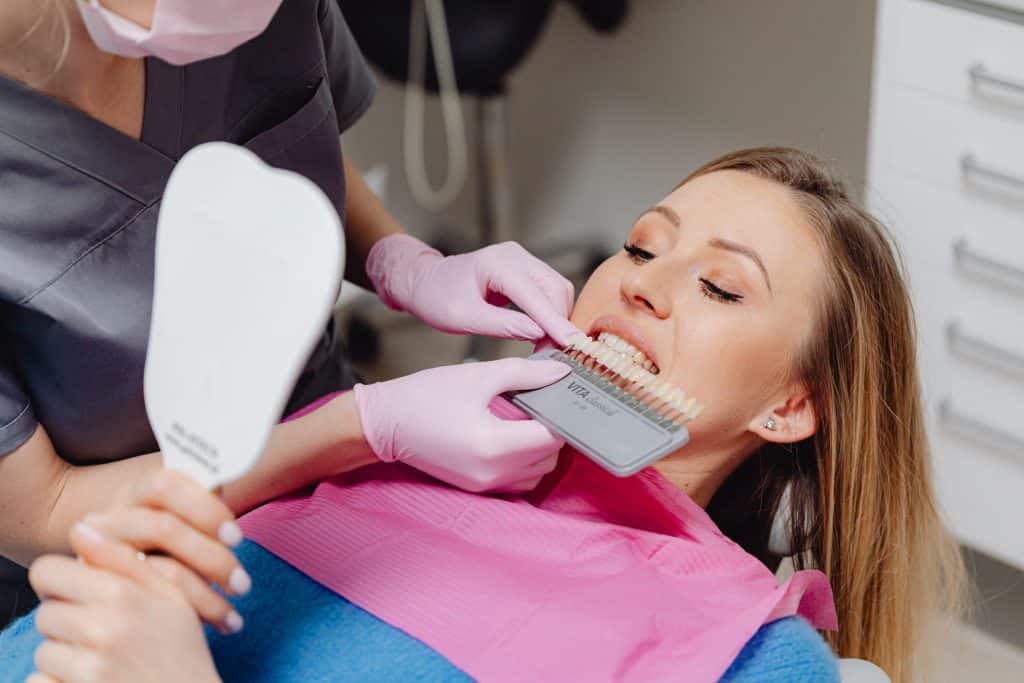Dental veneers have emerged as a game-changing alternative for attaining a smile that is complete and faultless. This piece, which was written with the aid of a prominent cosmetic dentist in London, looks into the complexities of dental veneers, including their advantages, the technique, and what patients in the United Kingdom may anticipate from the process.
What are Dental Veneers?
Thin porcelain or composite resin shells called dental veneers are meant to cover front surfaces of teeth. They are mostly used by cosmetic dentiststo improve the look of teeth that have gaps between them, discoloured, worn down, chipped, misaligned, or otherwise damaged appearance. Popular among those looking for a perfect smile, the veneer process provides a look that replics teeth’s natural appearance.
Types of Dental Veneers
With the help of Dr Sahil at Marylebone Smile Clinic we learn that there are two main types of dental veneers: porcelain and composite resin. Each type has its own set of advantages, which we will explore in detail.
Porcelain Veneers: Known for their durability and natural appearance, porcelain veneers are resistant to staining and can last between 10 to 15 years with proper care. The porcelain material mimics the light-reflecting properties of natural teeth, providing an aesthetically pleasing result.
Composite Resin Veneers:Made of a tooth-colored resin substance, these veneers demand less tooth enamel removal than porcelain veneers. Though they are less costly, they are also less durable and may have to be changed more often—usually every five to seven years.
The Veneer Procedure
The process of getting dental veneers usually involves multiple visits to the dentist, including consultation, preparation, and bonding.
Consultation:The dentist will assess your oral health, go over your cosmetic objectives, and ascertain whether veneers are the best fit for you at the first consultation. This phase could call for X-rays and tooth impression making.
Preparation: In the next visit, the dentist will prepare your teeth for veneers by removing a small amount of enamel from the tooth surface. This ensures that the veneers will fit properly and look natural. Impressions of your teeth are then taken and sent to a dental laboratory where the veneers will be custom-made.
Bonding: Once the veneers are ready, the dentist will place them on your teeth to examine the fit and color. Adjustments are made if necessary. Your teeth will then be cleaned, polished, and etched to create a strong bond. The veneers are attached using a special cement, which is hardened with a curing light.
Benefits of Dental Veneers
Dental veneers offer numerous benefits, making them a preferred choice for cosmetic dental enhancements.
Enhanced Appearance: Veneers can significantly improve the color, shape, and alignment of your teeth, resulting in a more attractive smile.
Natural Look: The materials used for veneers closely resemble the appearance of natural teeth, ensuring a seamless and natural-looking smile.
Stain Resistance: Porcelain veneers are particularly resistant to staining from foods, drinks, and smoking.
Durability:Veneers offer a long-term fix for a great smile and can last for many years with correct care.
Caring for Your Veneers
Proper care and maintenance are crucial to ensure the longevity and appearance of your veneers. Here are some essential tips:
Good dental hygiene—brushing and flossing often—helps you to keep your veneers looking and healthy by preventing plaque development. Steer clear of biting on hard foods or objects that could compromise the veneers as well. Professional cleanings and quality of your veneers depend on regular dental visits. To maintain the finest appearance of your veneers, lastly cut back on the intake of staining foods and beverages including red wine, tea, and coffee.
Potential Risks and Considerations
While dental veneers offer numerous benefits, it is essential to be aware of potential risks and considerations.
Irreversible Procedure: The enamel removal process is irreversible, meaning that once you have veneers, you will always need some form of dental restoration on the treated teeth.
Cost: Veneers can be expensive, especially porcelain veneers. It is important to consider the cost and whether it fits within your budget.
Sensitivity: Some patients may experience increased tooth sensitivity following the procedure due to enamel removal.
Not Suitable for Everyone: Veneers are not suitable for individuals with severe dental issues such as tooth decay, gum disease, or weak teeth. A thorough dental examination is necessary to determine eligibility.
Why Choose a London Cosmetic Dentist?
Choosing the right cosmetic dentist is crucial for achieving the best results with dental veneers. London cosmetic dentists, especially those at renowned clinics, offer several advantages:
Expertise and Experience: London cosmetic dentists have extensive training and experience in performing veneer procedures, ensuring high-quality results.
State-of-the-Art Facilities: Clinics in London are equipped with advanced technology and facilities, providing a comfortable and efficient treatment experience.
Personalized Care: London dentists prioritize personalized care, tailoring treatments to meet individual needs and aesthetic goals.
Reputation and Trust: Established clinics in London have built a reputation for excellence, attracting patients from across the UK and beyond.
The Cost of Dental Veneers
Several elements can affect the cost of dental veneers: type of veneers, number of teeth being treated, and dental practitioner experience. While composite veneers are less expensive in the UK—between £250 and £500 each tooth—porcelain veneers usually cost between £500 and £1,000 per tooth.
It is essential to discuss the cost with your dentist during the consultation phase and inquire about payment plans or financing options that may be available.
Conclusion
Dental veneers offer a remarkable solution for individuals seeking to enhance their smile and boost their confidence. With the expertise of a London cosmetic dentist, patients can achieve natural-looking, durable, and aesthetically pleasing results. By understanding the types of veneers, the procedure, benefits, and care requirements, individuals can make informed decisions about their cosmetic dental treatments.
If you are considering dental veneers, consult with a reputable London cosmetic dentist to explore your options and embark on the journey to a radiant smile.
Angela Spearman is a journalist at EzineMark who enjoys writing about the latest trending technology and business news.
